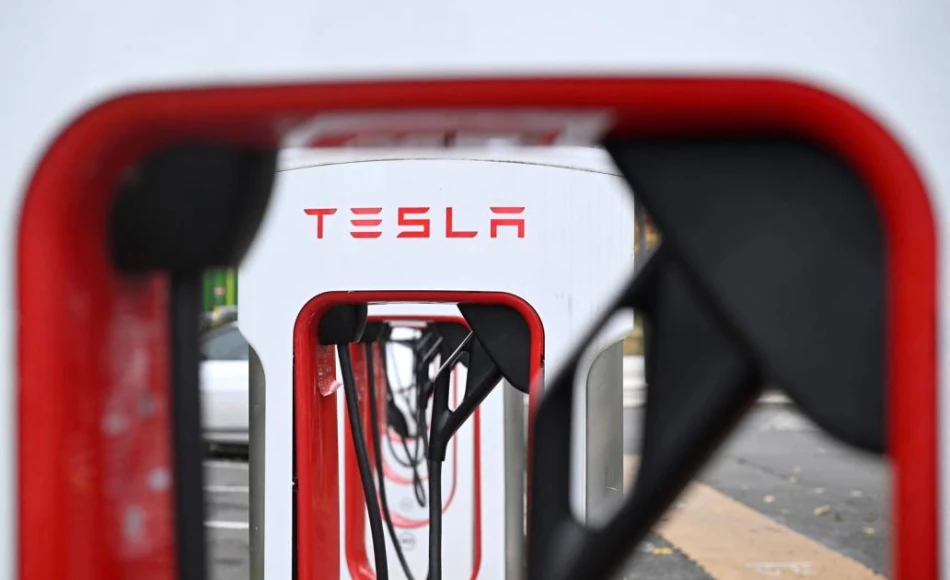
Tesla Holds the Key to Waning Electric Vehicle Demand: Insights Unveiled
General Motors just announced a $1.6 billion writedown on its electric vehicle investments, marking another major retreat by traditional automakers from the EV market. This comes as Ford's CEO predicts EV demand will drop by half once federal tax credits disappear, and Stellantis scraps its Europe-only electric goals by 2030. But here's where it gets interesting: Tesla, the biggest EV seller in America, might actually benefit from this industry pullback.
The timing couldn't be more challenging for the EV sector. Trump's administration ended the $7,500 federal tax credit for electric car purchases in September, creating massive uncertainty for an industry already struggling with slower-than-expected adoption rates. Traditional automakers are now scrambling to reset investor expectations after years of ambitious electric promises.
Tesla holds 43.1% of the US EV market as of September, down from 49% at the end of last year. While that sounds like bad news, the company's declining market share mostly reflects increased competition from traditional automakers - the same companies now backing away from electric vehicles.
Steve Greenfield from Automotive Ventures believes Tesla could see its market share recover as competitors retreat. "Tesla has very strong brand loyalty," he said. "Most Tesla buyers will likely continue purchasing their next car" from the company.
But Tesla faces its own headwinds. The company recently launched cheaper versions of its Model Y and Model 3 to offset the loss of federal incentives, which will squeeze profit margins. Greenfield expects Tesla to face a "double hit" - fewer overall EV sales combined with lower profits per car.
Wall Street analysts expect Tesla's third-quarter revenue to grow just 3.5% year-over-year to $26.1 billion when the company reports Wednesday. More concerning, they predict revenue will actually decline in the fourth quarter and drop 3.5% for all of 2025 - which would be Tesla's first-ever annual revenue decline.
The policy changes go beyond just tax credits. Trump's administration also eliminated California's ability to set its own car standards, canceled billions in funding for EV charging stations and manufacturing retooling, and plans to roll back emissions standards that encourage electric vehicle adoption.
Meanwhile, Elon Musk keeps trying to shift investor focus away from car sales toward robotaxis and humanoid robots. Tesla is testing limited robotaxi service in some cities but trails far behind Waymo, which is rapidly expanding commercial operations. Musk claimed in September that "about 80% of Tesla's value will be from Optimus" robots, though the company has struggled to meet production targets and faced significant staff departures from the robotics team.
Mark Wakefield from AlixPartners notes that consumer demand for EVs "had plateaued a bit" even before the Republican spending bill eliminated incentives. Car buyers were waiting for electric vehicles to match hybrids or gas cars on cost - a moment that keeps getting pushed further out.
For now, Tesla still depends on car sales to drive its business. And while the company might gain market share as competitors retreat, the overall EV market appears to be shrinking, at least in the near term. Tesla's ability to navigate this transition while maintaining profitability will determine whether Musk's ambitious robotics predictions ever become reality.
Most Viewed News

 Omar Rahman
Omar Rahman






